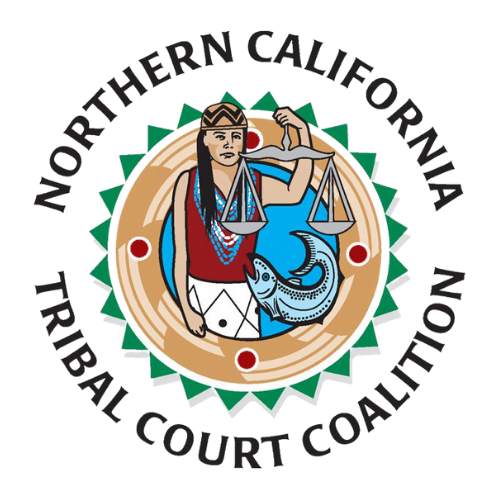In September of 2021, NCTCC staff interviewed NCTCC Board members, Hon. Judge Leona Colegrove, Chief Judge for Hoopa Tribal Courts, and NCTCC Secretary Megan Siaosi, Bear River Band Rohnerville Rancheria Tribal Court Director, to learn about the effects COVID-19 has on Tribal Courts.
What is a Tribal Court?
Tribal Courts are an inherent part of exercising Tribal sovereignty in order to resolve disputes in Tribal communities. There are over 400 Tribal Courts in operation and each have their own methods of administering justice.
How can Tribal culture be incorporated into the Tribal Courts?
Incorporating Traditional Tribal Justice systems is a cultural approach to justice within Tribal communities. According to Judge Leona Colegrove, while western culture brings a linear, hierarchical process to justice, the Tribal judicial system is horizontal. Traditionally, the whole community would come together to administer justice to those who broke the law or to settle a dispute in Indian Country. There was not one person stating the law, there were elders, family members, groups, and different leaders who administer justice. This is how it has always been in Tribal communities.
What is a Wellness Court?
A Wellness Court is a type of Tribal Judicial Court that integrates wellness concepts into substance abuse cases by using a team approach to provide a service for the court client while aiding to restore community balance.
How Have Tribal Court Operations Been Affected During COVID-19?
Applying COVID 19 within the traditional Tribal Justice horizontal approach makes it difficult to come together as a community. Judge Leona Colegrove explains how issues of vulnerability and outreach methods have become challenges to Tribal Courts during COVID-19. Megan Siaosi, Bear River Court Administrator, explains how COVID-19 has affected communication and synergy in the Bear River Band Tribal Court.
Vulnerability: Tribal groups are already living in a community with a more vulnerable population than others. Tribal communities make up less than 2 percent of the population. In Tribal communities we hold our elderly population as very sacred because they hold so much knowledge about our past and culture and often this knowledge is not recorded anywhere; if we lose that it is just gone. This is a disease that can literally wipe out an entire elderly population of our people simply because there are not very many of us.
Outreach: In the recent past, we adopted a western style of justice that hasn’t worked well for us. People are used to this approach to justice. We need to shift back to the way things used to be before Tribes adapted to the western Courts. People don’t always like change, so we need to educate and outreach. This means providing outreach in the form of dinners, community events, and feeding people, which is difficult to do during COVID 19. So we need to think outside the box with how to build community outreach.
Communication & Synergy: Tribal Courts are based around mediation. Mediation is built with trust and personal communication. Body language and sitting in a room on the same level as others while talking through issues comes through differently when talking on the phone or while at a zoom meeting. There is a lack of personal and emotional connection. When we talk about the traditional restorative style of transitional justice, it is lacking with zoom online meetings, because the connections can not be forged.
How Can Tribal Courts Overcome the Challenges of COVID-19?
According to Megan Siaosi, strong Tribal leadership and resilience is key:
“Indigenous Peoples have proved time and again how resilient they are. As a whole, zoom is helping us to come together to find solutions to these problems. We are becoming experts of technology when before we were trying to become experts on learning how to run meetings interpersonally. The Bear River Band Rohnerville Rancheria Tribal Council is always thinking about promoting the safety of the community. Strong leadership during this time is very important.”

